‘Information about the School is Passed from Generation to Generation’
From July 2 – 7, 2016, the 10th Russian Summer School on Institutional Analysis (RSSIA) took place just outside of Moscow. This event traditionally attracts experts in various areas of institutional research, as well as young researchers, for whom the School is a chance to work on projects under the supervision of leading scholars.
Experts and students at RSSIA 2016 told us about how the School has changed over the last 10 years, while those attending for the first time shared their expectations and impressions.
Participants from 15 universities were present at RSSIA 2016. The experts included John Nye (George Mason University and HSE), Maria Yudkevich (HSE), Marian Moszoro (University of California, Berkeley), Sergey Popov (Queen’s University Belfast), Michael RochlitzPaola ValbonesiKonstantin Sonin, Professor at Chicago University and HSE, was also an invited expert at the School this year.
This year, the Center for Institutional Studies (CInSt) organized the School in conjunction with the Yegor Gaidar Foundation, which supports projects aimed at providing economics instructors at regional Russian universities with access to high quality and up-to-date information and know-how. Svetlana Merkushina, the Foundation’s Director for Educational Projects, noted that this was their first experience in organizing a school with international participants. She added that the Foundation plans to develop this area further in the near future.
Each day of the School started with an expert speaking on key trends in their area of specialization with references to various key publications. Each expert also presented one of their recent papers at these morning sessions. In the afternoon, participants worked intensively on their projects, as well as discussed them at workshops and consultation meetings. According to Elena Podkolzina, CInSt Senior Research Fellow and one of the School’s organizers, it is the experts’ task to help the audience come up with new ideas and illuminate potential options for developing their projects.
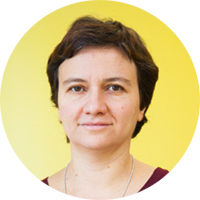
Maria Yudkevich, HSE
The academic community, which is an essential component in the promotion of research, does not just appear out of nowhere. Rather, it develops thanks to focused investments made by people ready to spend their time in search of like-minded counterparts. RSSIA’s approach is one of the ways of fostering such a community.
Over these past 10 years, the School has changed, as has the academic environment. New regional centres have been developed, along with globally-focused teams. Furthermore, the 5-100 Programme has appeared, while universities are implementing various internationalization programmes. Thus, the School has shifted its focus from cooperation between the Moscow and regional Russian communities to the wider circle of the global academic community. In this way, the School has truly become international.
Both HSE and its global image have changed. We are attracting students from well-respected universities. Professors at these universities recommend students to us. Information about the School is now passed from generation to generation. For instance, some people, whom our experts helped to obtain initial information about certain PhD programmes and get enrolled in international universities, are now themselves instructors and their students come to us. Also, we now have the opportunity to select not only those who are interested in gaining a new experience, but those who are interested in us as a research centre and want to study institutional economics.
Despite all of the recent changes, the main concept remains the same, which is to attract skilled experts, who are ready to dedicate a whole week to the School’s participants and not only work as tutors, but also cultivate an intellectually intensive atmosphere through communicating with students and other experts. For many students, especially those coming from regional universities, the School is their first immersion in the academic community, where people learn to comment on each other’s work and help to develop projects. This is not from a supervisor-student or superior-subordinate position, but as part of a normally functioning intellectual team, where people participate on equal terms.
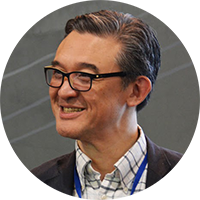
John Nye, George Mason University and HSE
It’s a great pleasure for me to be here for the 10th anniversary of the Russian Summer School on Institutional Analysis. When I came in 2009, I was the first foreigner to lecture in English at the Russian Summer School. Around half of the students were able to make presentations in English, and those who could do this signed up for my group. The others were in the Russian group. When I came back in 2011, the School was entirely in English. I’ve come here every year since 2011, and it’s been a success in terms of creating a large group of highly motivated students, both Russian and non-Russian, as well as a very diverse faculty able to offer interesting presentations with the aim of helping students to move with the times.
I think that, before the first couple of workshops, there was larger fraction of people who were not really interested in research. They were primarily interested in teaching. In contrast, I would say that the majority of students, especially in this workshop, are already very advanced. Even if they make mistakes, they have a good idea of what research is. They are much more integrated into international norms of study, while they also have very clear expectations of what they need to do and what needs to be developed in order to improve their chances of succeeding. Moreover, the foreign students we’re attracting have a strong interest in Russia and doing social science here. Furthermore, they also have a good impression of HSE.
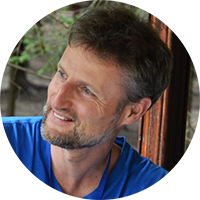
The quality of projects has greatly improved over the five years since I first came to the School. In the beginning, all of the projects were very vague. So, now it is clear that the quality has gone up. This is especially true with the Russian students, as people have a much better understanding of they want to do and are better equipped to do it, so you can provide a lot of quality feedback. If someone comes in unprepared, the feedback falls like rain on the desert. But now the rain usually falls on those places where it is needed. In regards to the organization of the School, I think this is the right format. As a matter of fact, I went to Corsica, and the European experts from the school of institutional analysis, ESNIE, employ a very similar approach. You have keynote speakers, then sessions, and individual consultations in the afternoon. That’s how you create networks and generate ideas. Today I talked to a several people, and I got some ideas myself. So, it’s very useful.
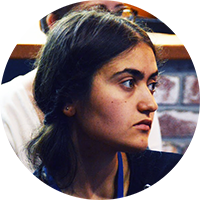
Sumeyra Atmaca, Ghent University
I'm now doing my PhD in Belgium at Ghent University. My project investigates the relationship between social networks and bank loyalty. However, my main reason for coming to this event is that there is collaboration on projects in regards to public procurement in Russia, in which we analyse the allocation of public contracts. Therefore, I thought it would be useful for me to attend the School, as a lot of related issues are covered. I also came earlier to work at HSE with my co-authors. We even found out that, on one of the last days, there will be a lecture on procurement by Paola Valbonesi.
.png)
Anna Kulkova, HSE
I attended the School this year to present a project on the culture and heterogeneity of trust. In particular, this specifically relates to how people’s names influence their level of trust in the society. I am working on this project together with Ekaterina Borisova from the HSE Institute for Industrial and Market Studies
It’s interesting that people with non-Russian names in ethnically Russian regions demonstrate a normal level of trust in others. However, in the Volga Region or in the North Caucasus, people with identities different from the majority tend to trust others less. It was very useful for me to talk with various experts, especially John Nye, who has published some papers on the issue of trust in society.
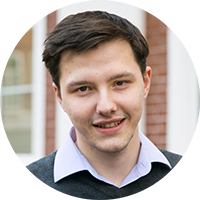
Andrey Zubanov, University of Wisconsin–Madison
This is the third time I’ve attended. The first two times I came to HSE was a student. This this year I’m working on my PhD in economics at the University of Wisconsin–Madison. This School has been a very interesting research experience for me. During the week, you have enough time to talk to different experts, engage in debate, and get some useful experience.
I’m continuing the research I started as an undergraduate together with my academic supervisor, Leonid Polishchuk. I study public goods. Specifically, my work covers the factors that motivate or, on the contrary, prevent people from investing in public goods. For example, I’m looking at how access to goods (i.e., how fast someone can get and use a given good) can influence a person’s readiness to fund this process. According to my research, high access costs for a resource often means that people might act more responsibly in their use of such a good.
You can see videos of the School’s lectures here.
Paola Valbonesi
Anna Kulkova
John V.C. Nye
Michael Rochliz
Konstantin Sonin
Maria M. Yudkevich
See also:
Cardiogenetics of the Future: Sequencing Helps Treat Heart Disease
Future cardiologists, geneticists, and IT specialists gathered at HSE University to learn how to 'read' DNA for diagnosing cardiovascular diseases. They explored modern sequencing methods and the complexities of working with digital twins of cardiac patients.
Archival Impulse: Dubna Hosts Summer School Organised by HSE University and JINR
The Joint Institute for Nuclear Research (JINR) in Dubna hosted the Archival Impulse Summer School, co-organised by JINR physicists, historians from the HSE Faculty of Humanities, and staff from the Archives of the Russian Academy of Sciences (ARAS). This first archival summer school continued the joint initiative of HSE University and JINR to examine and preserve the unique historical legacy of physicists.
HSE Shares Its Experience of Urban Strategies at International Summer School in China
In the context of intensifying global geopolitical and technological competition, leading Chinese educational institutions—Zhejiang International Studies University and Peking University—organised an International Summer School. Their joint programme focused on studying global, regional, and urban development strategies. The HSE Faculty of Urban and Regional Development took part in this event.
HSE GSB and Alfa-Bank Host Summer School for Chinese Students
The international summer school Digital Product Management, a joint educational project by the HSE Graduate School of Business (HSE GSB) and Alfa-Bank, brought together over 30 students from leading Chinese universities.
HSE University Students and Postgraduates Take Part in Peking University International Summer School
In July 2025, Peking University hosted its annual Quantum Molecular Dynamics Summer School, which has moved onto an international stage. Its first foreign guests were students and postgraduates from the HSE Tikhonov Moscow Institute of Electronics and Mathematics (MIEM). They took part in an extensive academic programme and had the opportunity to visit a laboratory that works with optoelectronic materials and energy devices.
‘Student Ideas Shed Light on Key Challenges for Urban Development’
The first international joint summer school of the Vysokovsky Graduate School of Urbanism (GSU) at both the HSE Faculty of Urban and Regional Development and Brest State Pushkin University (BrSU), hosted by BrSU, has come to a close. The programme focused on studying buffer zones along the railway lines encircling the city centre. Participants included students from the GSU’s Urban Planning degree programme, as well as students from BrSU and Brest State Technical University.
‘A Laboratory at 3,000 Metres’: HSE University–St Petersburg to Start Call for First Summer School in Himalayas
HSE University–St Petersburg has announced the call for the Summer School in the Himalayas, which will take place from June 30 to July 13, 2025. The Summer School is the follow-up to two expeditions in the Himalayas organised by the St Petersburg School of Social Sciences in 2024. The programme allows bachelor's, master's, and PhD students to immerse themselves in research on climate change and sustainability in local communities in the unique natural laboratory of the Himalayan region.
From Sequencing to Constructing a Cardio Panel: Summer School in Cardiogenetics
From August 19 to 29, the Continuing Professional Development Centre of the HSE Faculty of Computer Science hosted the summer school 'Cardiogenetics: From Sequencing to Constructing a Cardio Panel,' organised in collaboration with the Russian Academy of Sciences' Institute of Analytical Instrumentation (IAI) and Institute of Spectroscopy (ISAN), and the Syntol company. The summer school was conducted within the framework of the Federal Research Programme for Genetic Technologies Development for 2019–2027 (Project 15.IP.21.0004).
'These Are Unforgettable Impressions, I Will Cherish Them Forever'
HSE St Petersburg International Summer School is in full swing—right now, international students from 12 countries are attending lectures and enjoying the cultural programme. The HSE News Service talked to the participants about their most vivid impressions.
HSE University-St Petersburg Hosts Students from 12 Countries at the International Summer School
On July 10, HSE University-St Petersburg launched the International Summer School—a series of classes for students from India, Vietnam, the Republic of Korea and other countries. Foreign guests are getting to know the university, attending lectures in six fields of study, and enjoying an inspiring cultural programme.


